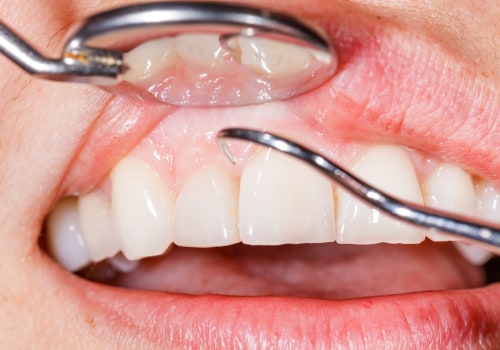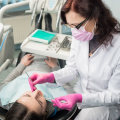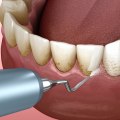Nutrition plays a critical role in maintaining good oral health. A diet high in sugar and processed carbohydrates can lead to tooth decay, periodontal disease, and other infectious diseases. On the other hand, nutrient-rich foods can help strengthen and maintain healthy teeth and gums. Teeth and gums need specific nutrients to develop and stay strong for long-term dental health. Poor nutrition can have a significant impact on periodontal health.
If your diet is low in essential nutrients, the tissues in your mouth may not be able to fight the infections that cause periodontal disease, which is a major cause of tooth loss in adults. Therefore, any change in periodontal health should be considered a warning sign to control the quality of patients' diets and thus reduce the risk of developing chronic diseases later on. These periodontal bacteria induce microbiota dysbiosis and the resulting inflammatory process leads to periodontal disease (PD). Some evidence suggests that probiotics and prebiotics may promote good periodontal health, but more studies are needed. At first, the person will be at risk of developing periodontal disease and then, as they age, they will face other chronic diseases such as cardiovascular disease, diabetes or cancer. Existing studies linking nutrition to periodontal disease have focused mainly on the intake of lipids and various micronutrients.
In patients with PD, applying a gel containing 1% curcumin (a bioactive substance in turmeric) to affected areas of the periodontal pockets had significant bactericidal effects on Capnocytophaga, F. Compared to caries, there are fewer studies exploring the relationship between nutrition and periodontal disease. Diet and nutrition significantly influence oral health and can affect the development and progression of oral diseases and conditions, such as tooth decay, periodontal disease, erosion, and others. However, more studies are needed before we can reach a conclusion about the effect of magnesium intake on periodontal health. Nutrition is recognized as an essential component in the prevention of a number of chronic diseases, including periodontal disease. Based on these considerations, it is necessary to better understand how diet, and more particularly the intake of macronutrients and micronutrients, could affect the possible relationship between nutrition and periodontal diseases, periodontal diseases and chronic diseases, nutrition and chronic diseases. It involves the integrity of the periodontal tissue, influenced by several factors such as smoking, oral hygiene, epigenetic and genetic factors, nutrition and systemic health.
Nutrition is a key risk factor for periodontal disease and other chronic diseases across the lifespan. This highlights that a person who adopts an unhealthy diet will be at risk of developing periodontal disease throughout their life. Some probiotics are believed to have a role in maintaining periodontal health and in treating PD. To overcome this complexity, an updated literature review was carried out on nutrients related to periodontal and chronic diseases.








